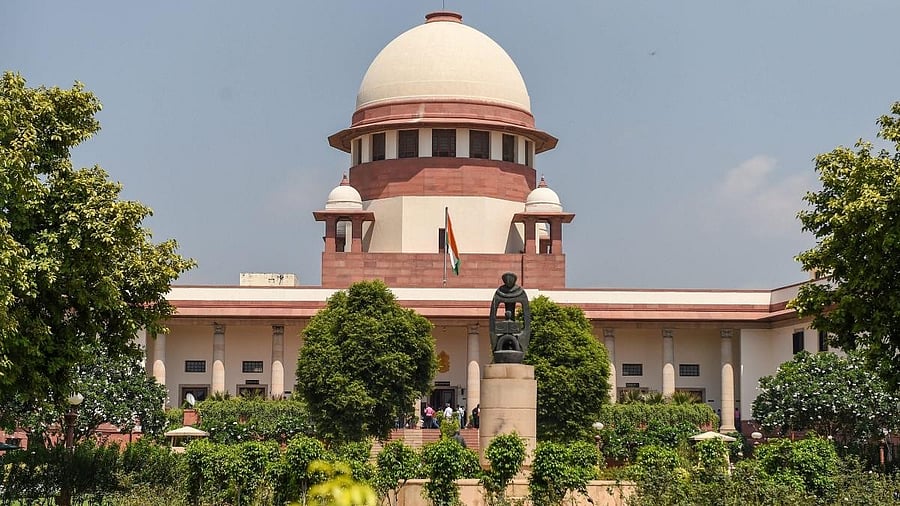
The Supreme Court of India.
Credit: PTI Photo
New Delhi: The Supreme Court on Tuesday came down on the Uttar Pradesh government for retaining the "colonial-era mindset" in governing cooperative societies and similar bodies where the spouses of bureaucrats like district magistrates are made ex-officio office-bearers.
A bench comprising Chief Justice Surya Kant and Justice Joymalya Bagchi asked the state government to take steps in amending relevant provisions within two months.
It said the byelaws of several societies in Uttar Pradesh continued to confer positions, such as the post of president, on the wives of top officials like district magistrates and chief secretaries.
Such provisions, the court said, were "wholly inconsistent with democratic principles".
The bench was hearing a petition filed by CM Zila Mahila Samiti, Bulandshahr, a women's self-help group, which challenged the practice after the wife of the district magistrate was made the ex-officio president of their samiti.
The group argued that the body, intended to assist destitute women, was being run on an ad hoc basis and that the arrangement lacked transparency and accountability.
"Why should the wife of a DM be the ex-officio president of such a society without any democratic process," the bench asked, observing that these arrangements had "no justification in modern governance".
It said the articles of the samiti reflected a mentality "dusted in the hands of the wife of the collector" and stressed that public bodies must be led by elected members.
The state acknowledged that a new bill to replace the 1860 registration law was already under preparation and sought time till the end of January to finalise it.
The court directed that as and when the bill is passed by the state assembly, the same be assented to and notified at the earliest.
The court said the amended provisions must ensure that model byelaws are framed for all state-funded societies, trusts and legal entities, and that any society refusing to follow them may lose its legal status or government support.
Governance structures, it added, "must lean towards democratic values where most members are duly elected."
Noting that elections and byelaws of the Bulandshahr Samiti had earlier been set aside, the court clarified that the group would not be derecognised and that an interim body would continue performing statutory compliances under applicable laws until a regular elected body takes charge after the new legal framework comes into force.
The bench also recorded the state's assurance that colonial-era provisions allowing bureaucrats' spouses to hold positions would be omitted and that the new legislation would be placed before the assembly "as early as possible" and notified without delay.